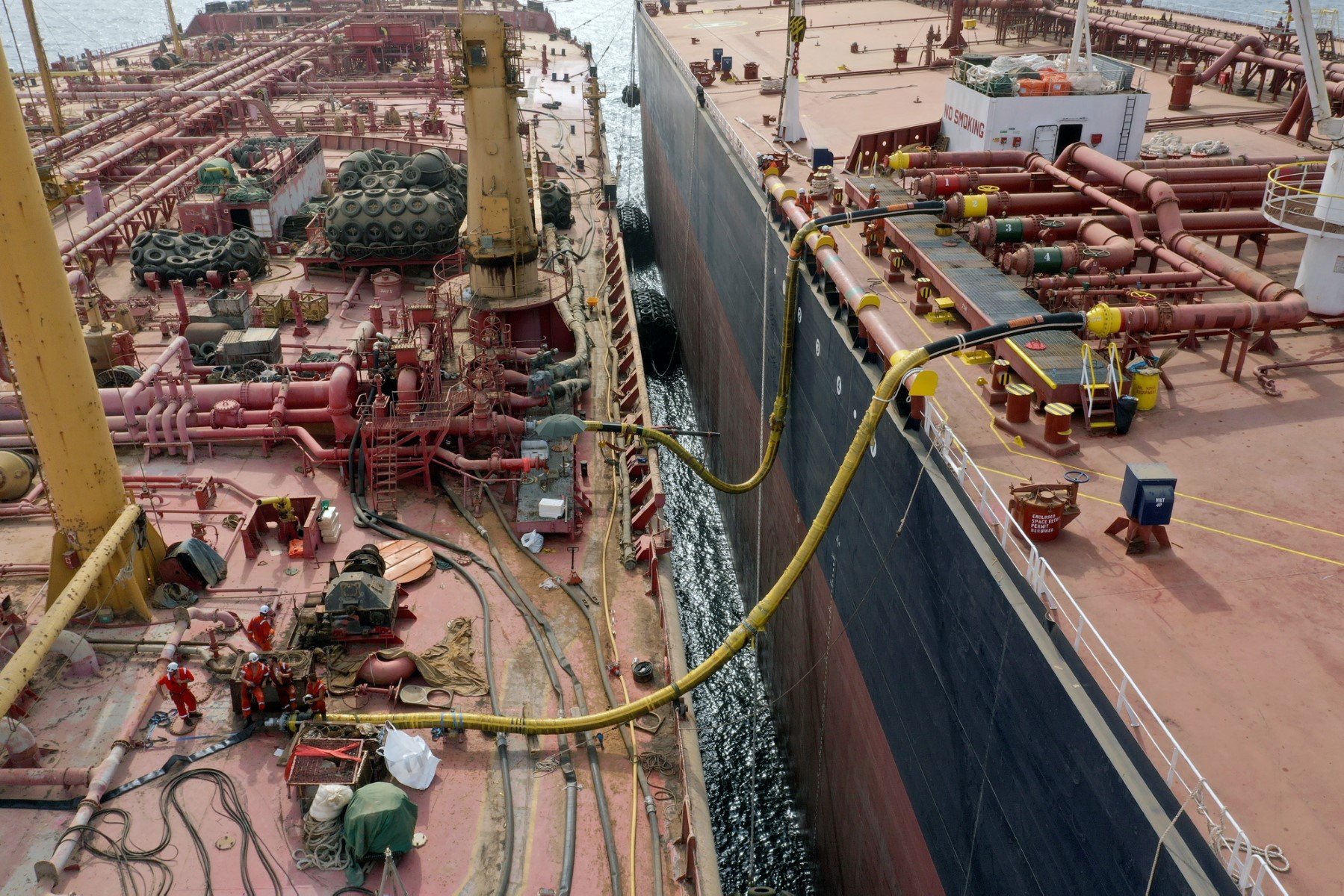Abu Dhabi, UAE–The UAE has applauded the UN for the successful unloading of oil from the deteriorating tanker, FSO Safer, situated off Yemen’s coast in the Red Sea.
The Ministry of Foreign Affairs (MoFA) lauded the collective efforts of the United Nations, its Secretary-General Antonio Guterres, the Coalition to Restore Legitimacy in Yemen, and the supporting donor nations. Their combined efforts ensured the prevention of a potential environmental and humanitarian disaster.
On Friday, the UN reported the successful transfer of over one million barrels of oil from the aging Yemeni tanker, thereby averting the immediate risk of an oil spill.
Antonio Guterres, the UN Secretary-General, expressed his relief at the successful transfer, emphasizing the avoidance of a significant environmental and humanitarian tragedy.
Achim Steiner, the head of the UN Development Programme, remarked that this achievement marked the conclusion of the “core aspect” of the prolonged initiative to address the threat posed by the Safer, frequently dubbed a “ticking time bomb.”
Residents of the port city of Hodeida, such as Yemeni doctor Main Ahmed, expressed their relief at the news, likening it to “a weight lifted off our shoulders.”
However, challenges remain. Despite the removal of its cargo, the Safer still presents a residual environmental threat due to the viscous oil residue it holds.
The next phase involves cleaning the Safer’s tanks and preparing it for towing and scrapping, a process expected to span two to three weeks.
The Safer, a floating storage and offloading facility, has been anchored approximately 50 kilometers from Hodeida since the 1980s.
The vessel, which hasn’t been serviced since the onset of the Yemen war over eight years ago, contained 1.14 million barrels of Marib light crude. This volume is quadruple the amount spilled in the 1989 Exxon Valdez disaster off Alaska.
The oil has now been transferred to a newer, smaller tanker named the Yemen, procured by the UN in March.
The entire operation, priced at $143 million by the UN, stands in stark contrast to the estimated $20 billion cleanup costs that would have been incurred in the event of a spill.
Greenpeace has called on oil giants, some of whom previously utilized the Safer, to contribute to the subsequent stages of the project.
The environmental organization emphasized the need for the oil industry to exhibit responsibility and accountability.
The future of the oil and the Safer remains uncertain. A long-term agreement on the vessel’s “future maintenance and management” is essential, as stated by Steiner.
However, the ongoing conflict in Yemen, marked by the appointment of rival executive general managers of the Yemeni oil and gas company SEPOC by authorities in Sanaa and Aden, presents complications.
The UN has highlighted the dire humanitarian crisis in Yemen, where hundreds of thousands have perished due to the conflict or indirect causes. Despite a reduction in clashes since a UN-brokered truce began last April, the situation remains precarious.
David Gressly, the UN resident coordinator in Yemen, expressed hope for a way forward, noting the cooperation between opposing factions during the oil transfer operation.

